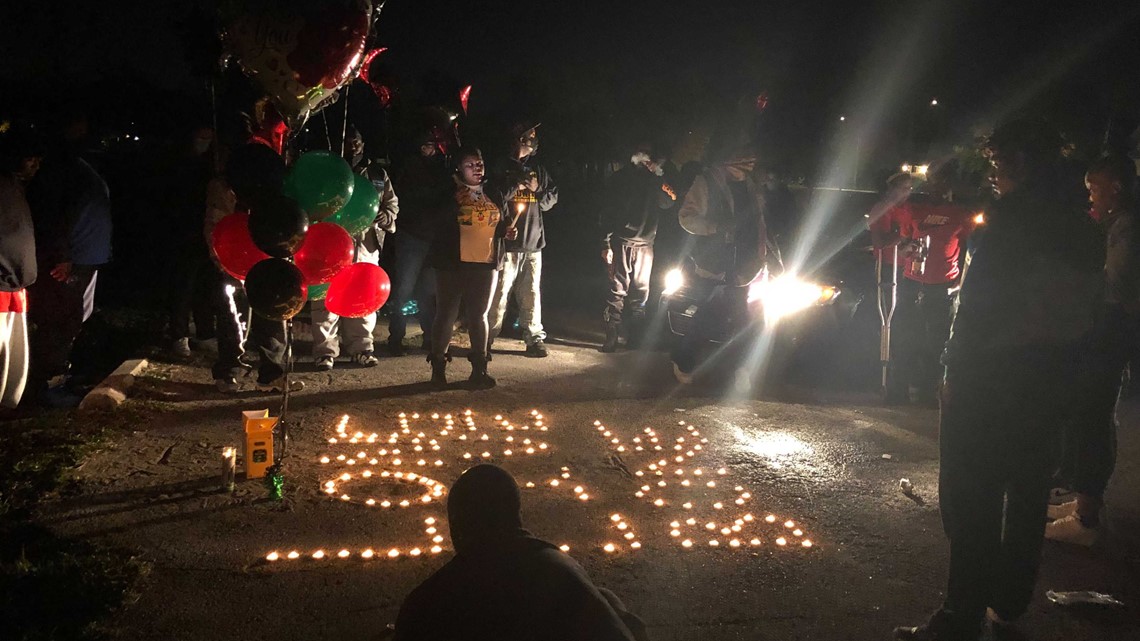SHOTS FIRED: What tools are in place to help solve crimes in Toledo - and are they working?
Nonprofit Crime Stoppers helps collect anonymous tips on cases in exchange for money. In 2020, it paid out just $7,400 and finished with over $400,000 in the bank.
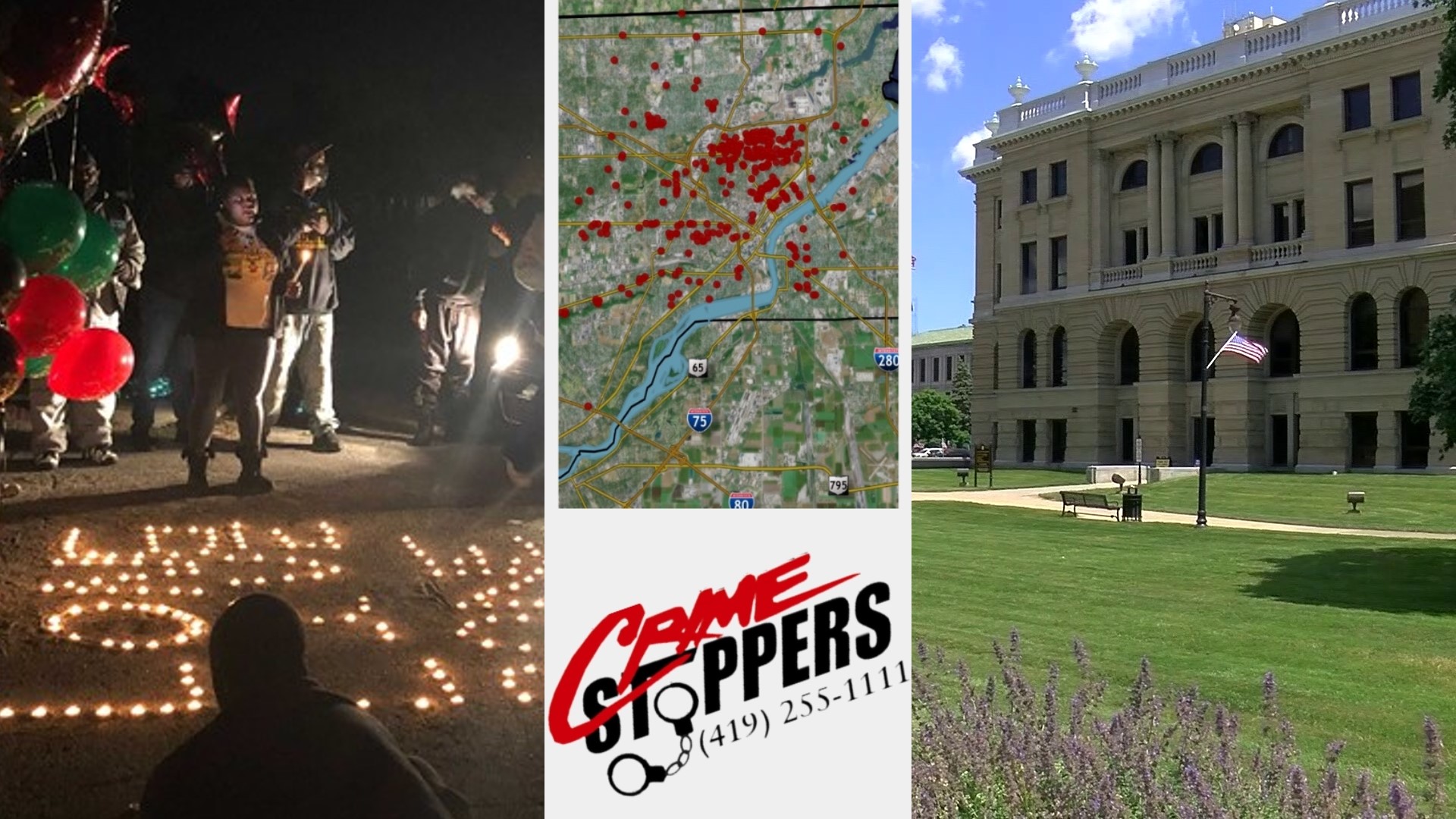
“The last couple of years have been out of line and we need to fix that.”
That's the writing that officials with Crime Stoppers Toledo - including organization President Jim Wiegand - can see on the wall.
Police cannot do their jobs without help from the communities they serve. There’s no program more well known in our area for helping than Crime Stoppers. Neighbors can give anonymous tips for a reward.
But does it actually work to solve crime in Toledo?
Over three days, our Shots Fired series will bring you a look at the data from Toledo police that pinpoints when and where violence happens the most, examine what tools are being used to track down violent perpetrators and show you the human side of who this gun violence ultimately affects.
Today, 11 Investigates' Michael Tatar dug for answers for Part Two of our violent crime series.
What Is Crime Stoppers? How the tipline works

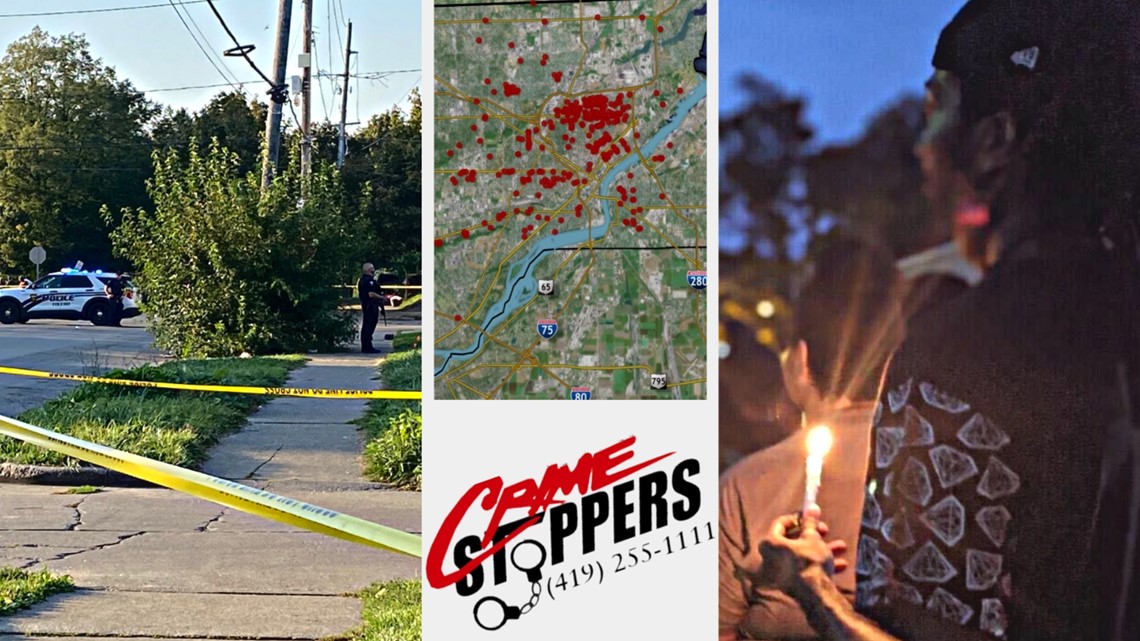
You’ve probably heard the call for help, even right here on WTOL 11 with reporters urging anyone with knowledge of a case to call Crime Stoppers at 419-255-1111
But at its core, what is Crime Stoppers?
“Crime Stoppers is a program that was developed in the early 1980s in order to get anonymous tips and pay rewards on various crimes throughout the area," Wiegand said.
In its mission statement, the organization asserts that Crime Stoppers personnel believes that the police should be the first stop for people who know what has happened when a crime takes place.
But, Crime Stoppers also recognizes that "many people who want to take action are close to the criminal and fear retribution." That's why it encourages anyone with information regarding unsolved crimes to call 24/7, as Crime Stoppers purports to provide a "secure means to get information to the police, making families and communities safer."
The reward kicks in when information regarding a crime leads to an arrest or indictment. Part of the focus of Crime Stoppers is to team up with the Toledo Police Department and Bureau of Alcohol, Tobacco, Firearms and Explosives to reduce violent gun crime. Information leading to the arrest or complaint/indictment of anyone who possesses an illegal firearm or is carrying, selling or using firearms illegally could be eligible for a reward up to $1,000.
Participation Decline COVID's Effect or Something More?

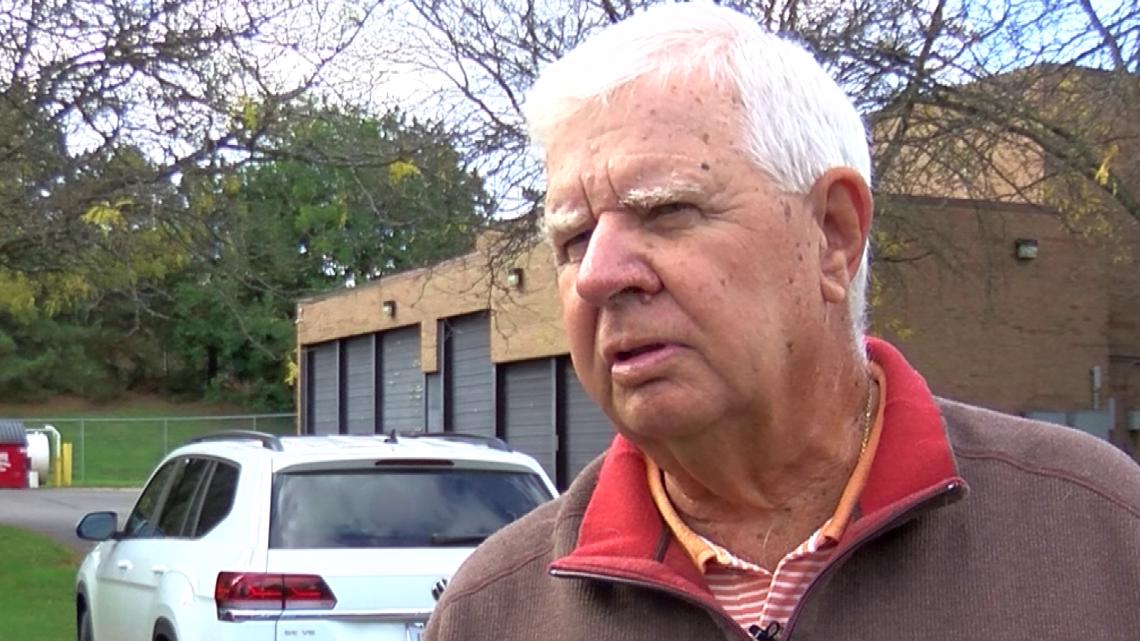
Wiegand has been president of the organization since the 1990s and a part of it since it started. The former Toledo policeman and Bowling Green State University police chief says the Crime Stopper program has been highly successful over the years.
In 2019, it paid out nearly $22,000 to tipsters.
But 2020 was different. The group paid out just $7,400 to 14 people and ended the year with over $400,000 in the bank.
“I think it was an anomaly," Wiegand said. "Certainly, it was lower than we’ve paid out in the past. Why? That’s a good question."
He believes the COVID-19 pandemic was a distraction for people even as violent crime rose here in the Glass City.
But he also believes the tenuous relationship between police and communities across the country is playing a role.
“There may be a little reluctance to be involved with the police department," he added.
Leadership Matters Founder cites red flags in Toledo
But Crime Stoppers is supposed to be a community organization, independent from the police. How do we know this? We tracked down the founder of the program, Greg MacAleese.
“We’re solving a major crime case somewhere in the world every 13 minutes," MacAleese said.
He created the first Crime Stoppers group in Albuquerque as a detective in 1976. Now there are more than 2,000 groups in 28 countries that have solved more than 2 million crimes and paid out $120 million in rewards.
He created the program to be led by the people, business owners, private citizens, parents and more.
Toledo’s program has several law enforcement board members, including the Toledo police chief, Lucas County sheriff and the Lucas County prosecutor.
MacAleese says that’s a red flag.
“It’s very important that the community have ownership of this program," he said, "and it’s not viewed as a law enforcement quote unquote 'program.'”
Toledo has never been affiliated with the national Crime Stoppers USA. But MacAleese says national Crime Stoppers would advise the local group to create an all-civilian board.
President Wiegand said the local group has always run it through TPD.
“I don’t think it’s a conflict," he said. "I don’t, really. I really don’t know why they think that. I mean we’ve been 40 years doing this and we’ve been really successful.”
He admits 2020 was not the best year. Both payouts and calls were down. Wiegand knows people fear retribution for helping police, even though the program keeps them anonymous.
“What we as a board need to do is figure out a way to increase those calls and increase those payouts," he said. "We have money. We want to pay the money. We want to assist the various law enforcement agencies in the area.”

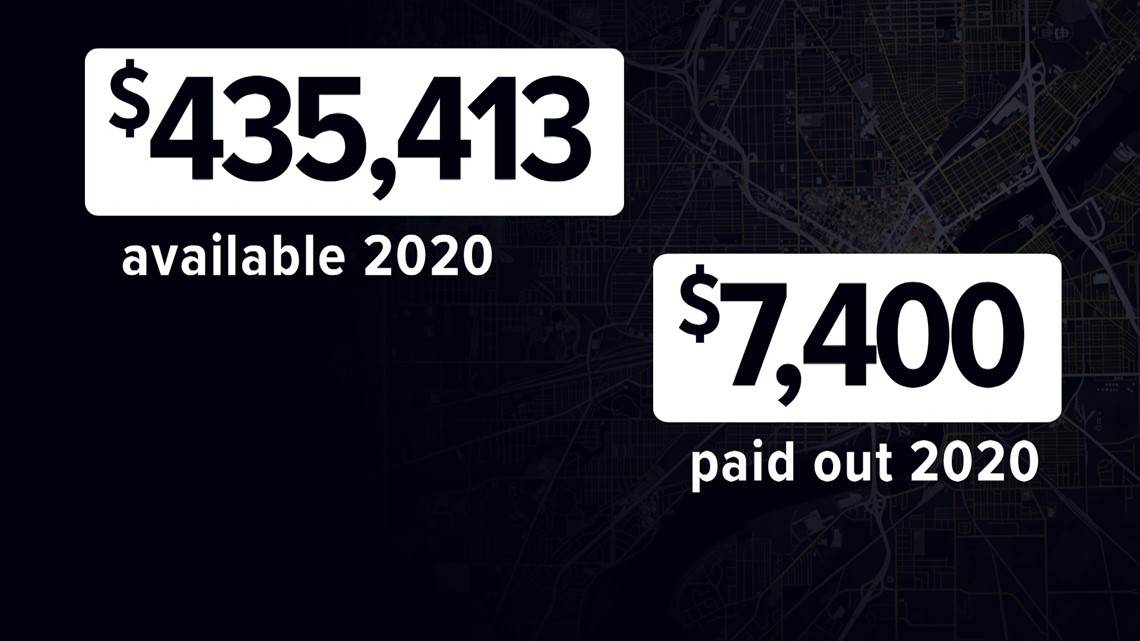
Feet on the Street TPD's neighborhood visibility

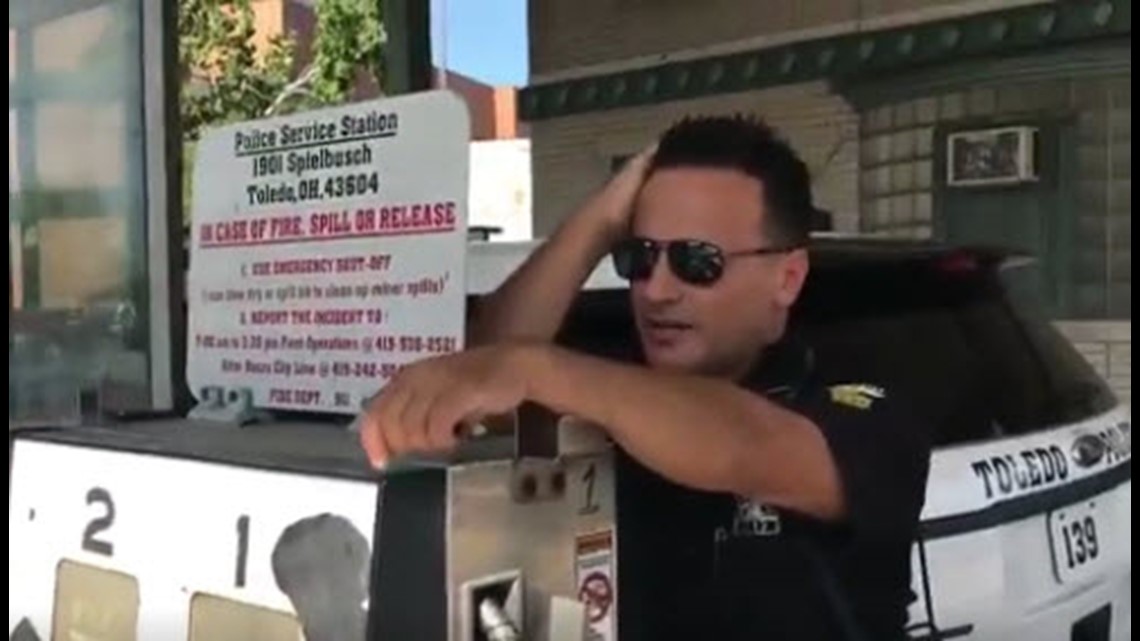
But they’re not the only ones trying to enlist the public’s help to solve crime.
“It’s nice to get out and actually interact more on a one-on-one basis with the community," Officer Justin Siminiak said.
Officer Siminiak is one of eight in Toledo’s community services division. Each is assigned to a sector in the city and given more time than patrol cops to walk and talk to neighbors and get to know them.
“I believe they open up to us a lot more because we can see them on a one-on-one basis," Officer Hassane Cheaib said. "They get to trust us, talk to us a lot more, because we walk around."
“We are human," Officer Melissa Stephens said. "A lot of times people see this, they see the uniform and they have a certain perception of what police officers are, but then they get to talk to you and know you.”
Toledo Police Chief George Kral has said he would like to add more community services officers. But whether it’s Crime Stoppers or the CSOs, they’re just some of the many tools needed to stop the violence.
“Maybe we can be the people that stop crime before it takes place," Siminiak said.

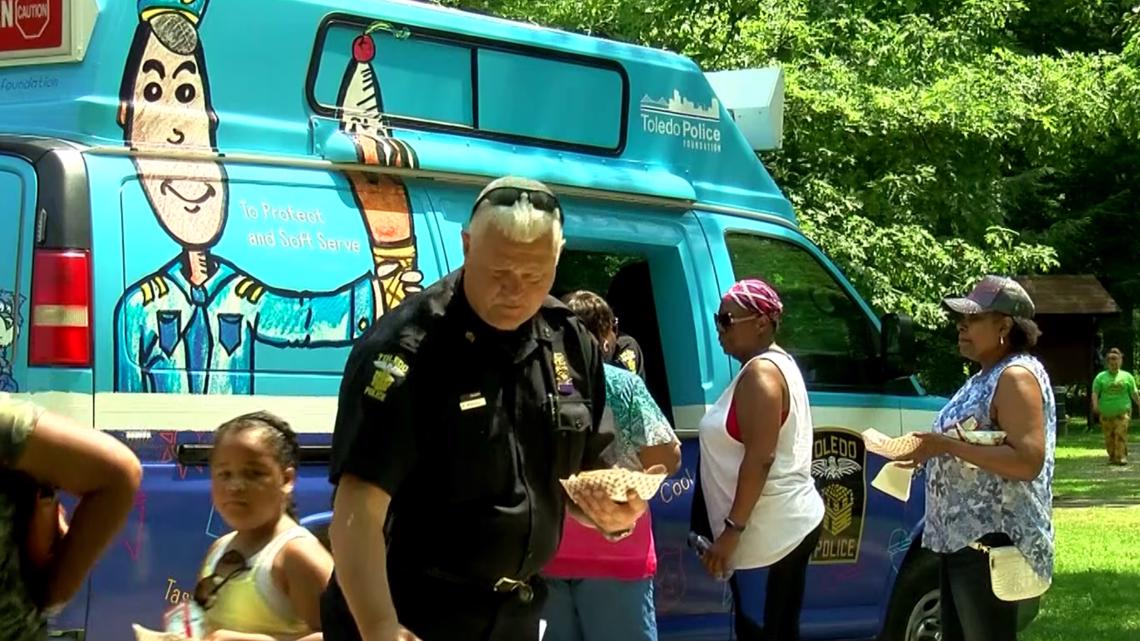
'The Citizens' Weapon' The challenge ahead
“Crime Stoppers we look at as being a real weapon. It’s the citizens' weapon to fight back against crime," MacAleese said.
“The information is out there," Wiegand said. "We just need to get it.”
MacAleese said Crime Stoppers has always worked because of the partnership between the public, police and media. He said all three play a role in helping the program succeed but it’s important the program belongs to the public.
He was adamant that Crime Stoppers Toledo should rethink its board to be made up of only civilian members and that could help people trust more in the program and lead to more calls and more crimes solved.
We also reached out to the city of Toledo on this issue. Mayor Wade Kapszukiewicz said he was just as surprised about the low Crime Stoppers' numbers for 2020.
“I had not heard that number before. It's shockingly low," he said. "What that tells me is what our stats tell us: These are individuals who know each other. They are worried more about retaliation. They value their life more than reward money from Crime Stoppers."
That challenge has continued this year. Crimestoppers Toledo has paid out a little over $9,000 so far this year out of 231 calls. That's just $2,000 more than last year.
And we're on track to have the most deadly year in the city's history.
There are good people living where these shootings are happening but they're just too afraid to call. And everyone agrees they need to do something to change that.

